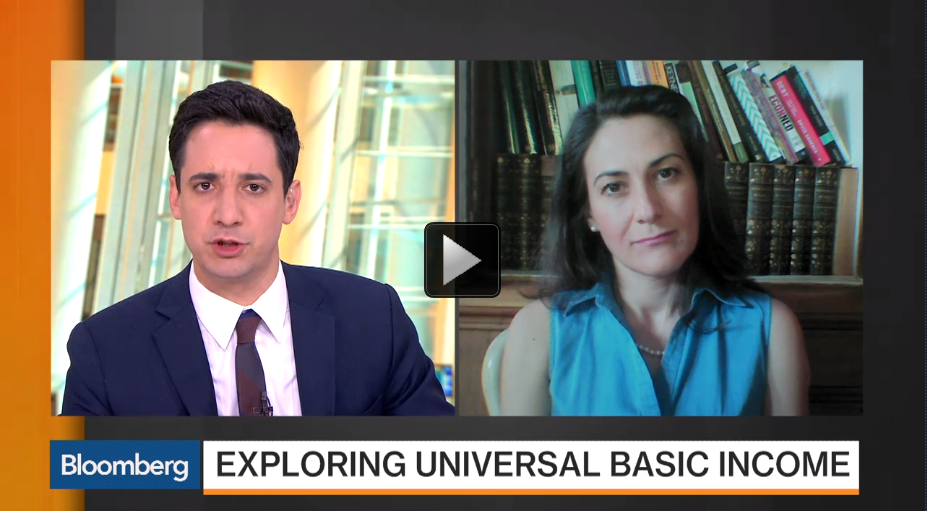Basic Income and the Job Guarantee
byPavlina Tcherneva was interviewed by Joe Weisenthal yesterday to present the case against a universal basic income policy (a proposed version of which was just voted down in Switzerland). Watch:
Tcherneva has written about the UBI versus Job Guarantee debate, including this contribution (pdf) to a special issue of the journal Basic Income Studies (paywall).
She also spoke about this last November at a roundtable convened by Dissent magazine:
[iframe width=”427″ height=”240″ src=”https://www.youtube.com/embed/MMshp0-odH0?start=1925″ frameborder=”0″ allowfullscreen></iframe]
Beyond the macroeconomics, Ezra Klein gets to the heart of what I think is one of the most pressing ethical questions with respect to basic income policies (this was a response to Eduardo Porter’s recent column on the issue):
Work, [Porter] writes, “is not just what people do for a living. It is a source of status. It organizes people’s lives. It offers an opportunity for progress. None of this can be replaced by a check.”
Later, he says that “in this world … where work remains an important social, psychological and economic anchor, there are better tools to help than giving every American a monthly check.”
Notice what he did there. “In this world.” So long as any discussion of a universal basic income is predicated on those three words, then I agree: It’s a bad idea. But the whole argument over a UBI, as I see it, is about the legitimacy of those three words. A UBI is the kind of radical policy that asks whether we actually need to live in this world, or whether there are better worlds on offer, if only we have the political and cultural courage to find them.
Does work — as currently conceived — have to be our primary source of status? Should it organize our lives? And can those dynamics be changed by a check?


